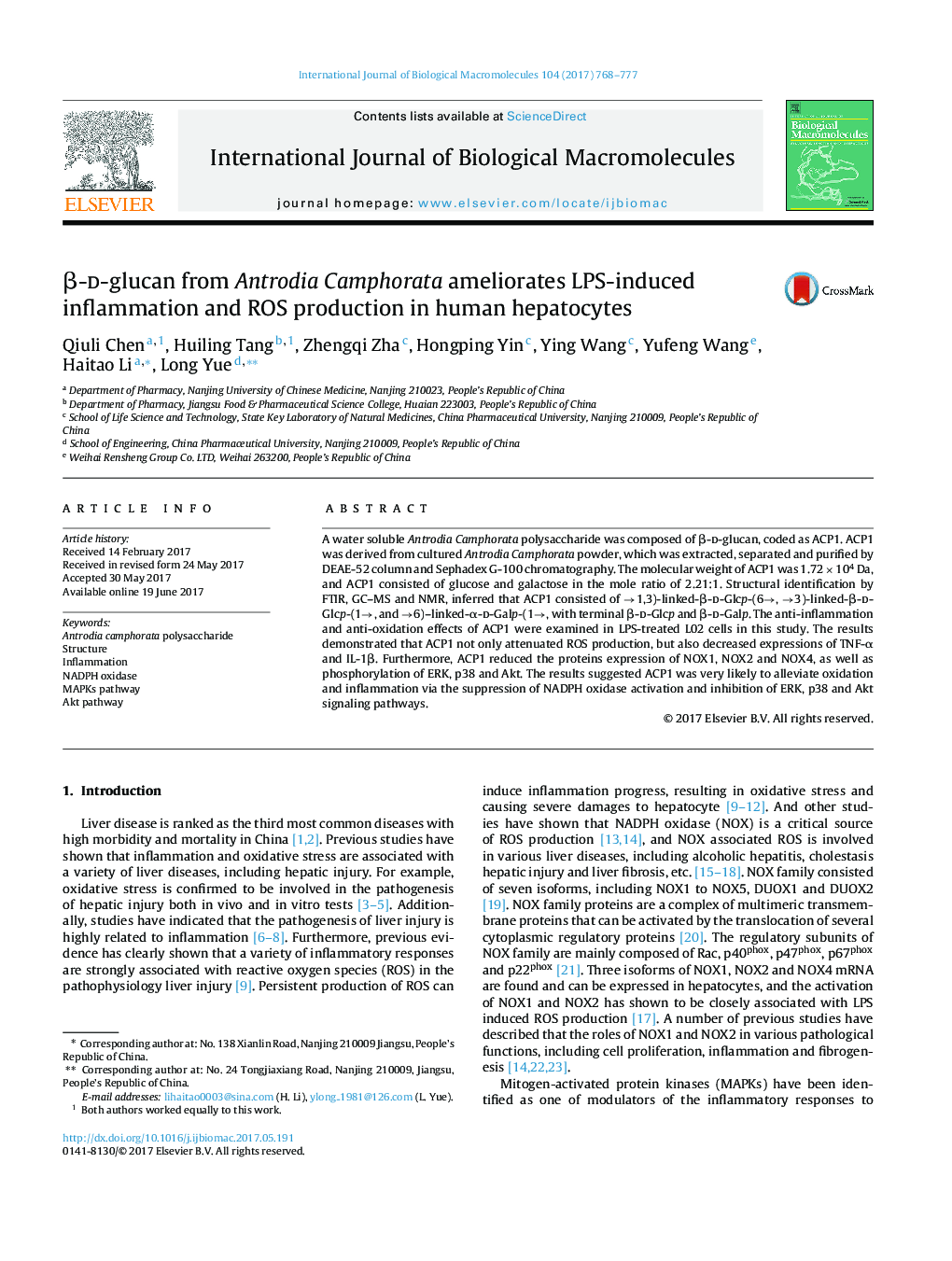| کد مقاله | کد نشریه | سال انتشار | مقاله انگلیسی | نسخه تمام متن |
|---|---|---|---|---|
| 5511704 | 1540214 | 2017 | 10 صفحه PDF | دانلود رایگان |
عنوان انگلیسی مقاله ISI
β-d-glucan from Antrodia Camphorata ameliorates LPS-induced inflammation and ROS production in human hepatocytes
دانلود مقاله + سفارش ترجمه
دانلود مقاله ISI انگلیسی
رایگان برای ایرانیان
کلمات کلیدی
موضوعات مرتبط
علوم زیستی و بیوفناوری
بیوشیمی، ژنتیک و زیست شناسی مولکولی
زیست شیمی
پیش نمایش صفحه اول مقاله

چکیده انگلیسی
A water soluble Antrodia Camphorata polysaccharide was composed of β-d-glucan, coded as ACP1. ACP1 was derived from cultured Antrodia Camphorata powder, which was extracted, separated and purified by DEAE-52 column and Sephadex G-100 chromatography. The molecular weight of ACP1 was 1.72 Ã 104 Da, and ACP1 consisted of glucose and galactose in the mole ratio of 2.21:1. Structural identification by FTIR, GC-MS and NMR, inferred that ACP1 consisted of â1,3)-linked-β-d-Glcp-(6â, â3)-linked-β-d-Glcp-(1â, and â6)-linked-α-d-Galp-(1â, with terminal β-d-Glcp and β-d-Galp. The anti-inflammation and anti-oxidation effects of ACP1 were examined in LPS-treated L02 cells in this study. The results demonstrated that ACP1 not only attenuated ROS production, but also decreased expressions of TNF-α and IL-1β. Furthermore, ACP1 reduced the proteins expression of NOX1, NOX2 and NOX4, as well as phosphorylation of ERK, p38 and Akt. The results suggested ACP1 was very likely to alleviate oxidation and inflammation via the suppression of NADPH oxidase activation and inhibition of ERK, p38 and Akt signaling pathways.
ناشر
Database: Elsevier - ScienceDirect (ساینس دایرکت)
Journal: International Journal of Biological Macromolecules - Volume 104, Part A, November 2017, Pages 768-777
Journal: International Journal of Biological Macromolecules - Volume 104, Part A, November 2017, Pages 768-777
نویسندگان
Qiuli Chen, Huiling Tang, Zhengqi Zha, Hongping Yin, Ying Wang, Yufeng Wang, Haitao Li, Long Yue,